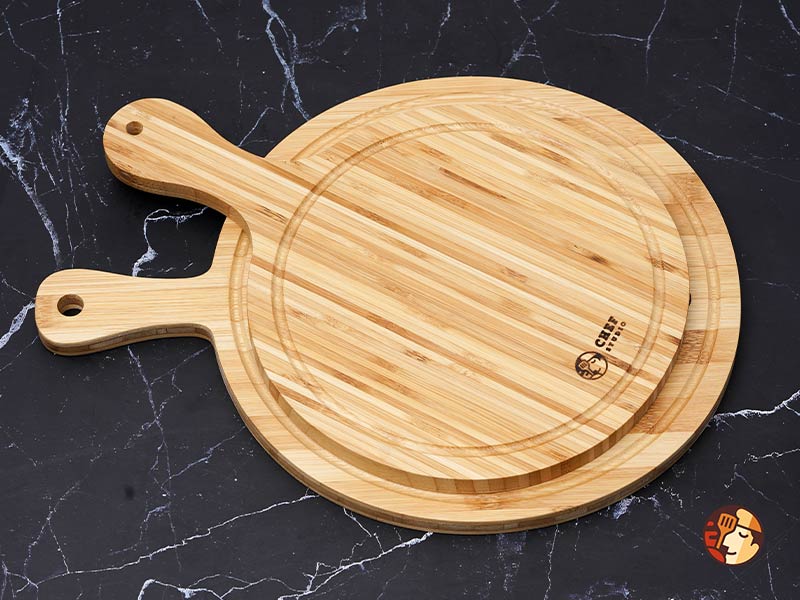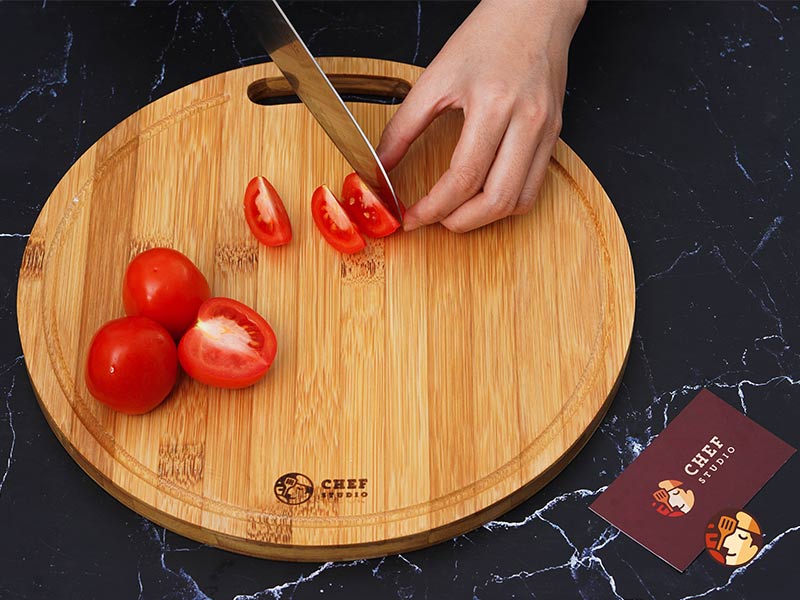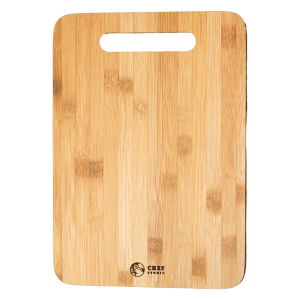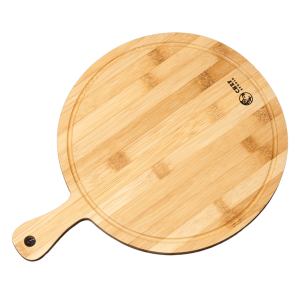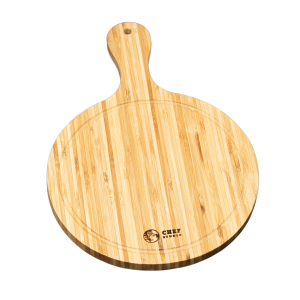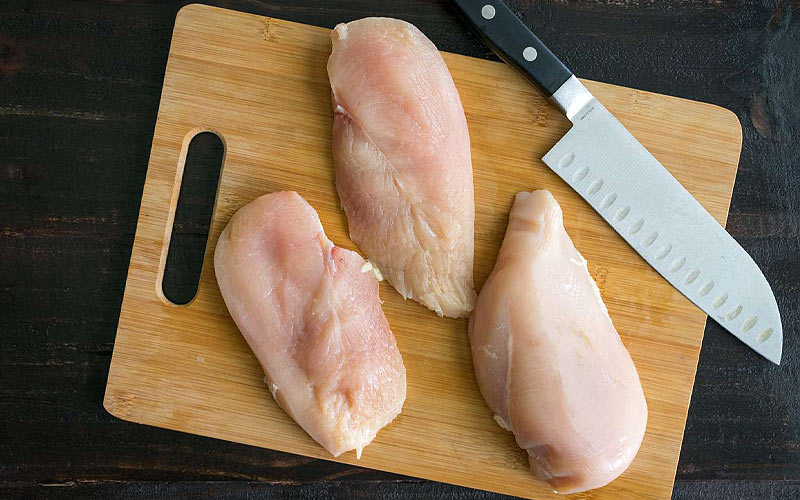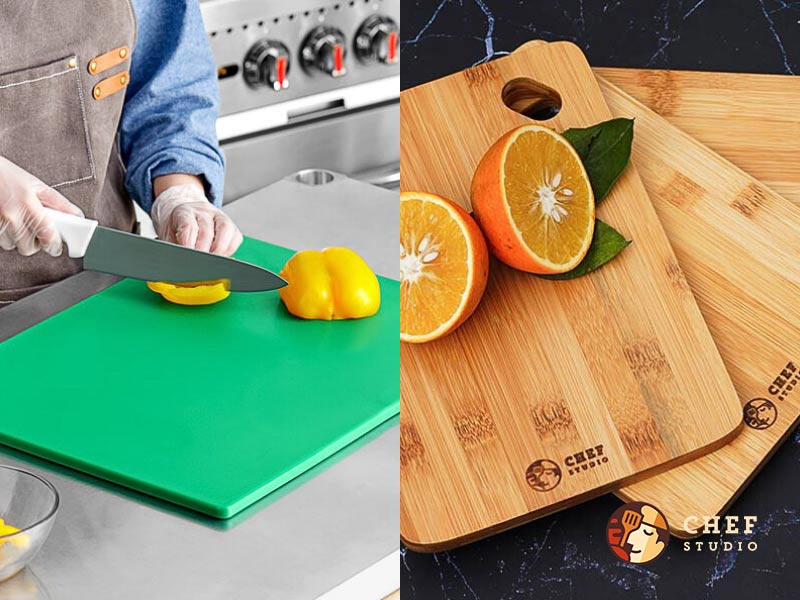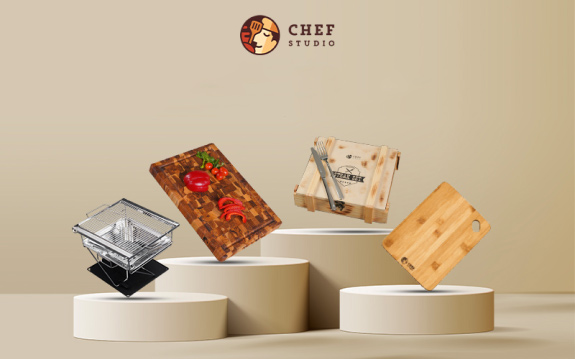Are Bamboo Cutting Boards Safe?
Bamboo cutting boards have become a kitchen favorite, and it’s easy to see why. With their sleek look, natural strength, and eco-friendly background, bamboo boards are a smart option for modern homes. But beyond their aesthetics and sustainability, many people ask: Are bamboo cutting boards safe to use? In the following guide, Chef Studio will walk you through the benefits of bamboo cutting boards and explain why they can be a safe and hygienic choice for your kitchen.
Are Bamboo Cutting Boards Safe To Use?
Eco-Friendly and Non-Toxic Material
One of the most significant advantages of bamboo cutting boards is their sustainability. Bamboo is actually a type of fast-growing grass, not wood, that can grow up to 91 cm in just 24 hours. Because of this rapid growth and low need for water or pesticides, it’s considered an environmentally friendly and renewable resource.
Many bamboo cutting boards are made using organic bamboo and non-toxic, food-safe adhesives, making them safe for food preparation. So if you’re wondering, are bamboo cutting boards safe for food contact? – The answer is yes.
Naturally Antibacterial and Hygienic
So, are bamboo cutting boards good to use? When it comes to food safety, bamboo shines. Bamboo contains a natural antimicrobial agent called bamboo kun, which helps resist bacteria such as E. coli and Salmonella. This means bamboo boards can reduce the risk of cross-contamination, especially when used properly and cleaned after each use.
Furthermore, bamboo is less porous than traditional hardwoods, which means it doesn’t absorb as much moisture. This limits the growth of bacteria and keeps your board more sanitary. Its smooth surface is also more resistant to knife scars, preventing grooves that could trap bacteria over time. So again, are bamboo cutting boards safe compared to other materials? They’re definitely a cleaner, more hygienic choice.
Durable and Refinishable
Bamboo cutting boards are not only strong and scratch-resistant, but they also last a long time. Their hardness protects them from dents and knife marks, and when the surface does begin to show wear, it can be easily refreshed. Light sanding with fine-grit sandpaper can restore the surface to like-new condition, something plastic or synthetic boards can’t offer.
Tips for Safe Use
While bamboo cutting boards are safe and hygienic, proper care is essential to maintain their quality:
- Clean by hand: Always wash your bamboo board with mild soap and warm water—never in the dishwasher.
- Dry immediately: Avoid soaking, and be sure to dry the board thoroughly to prevent warping.
- Oil regularly: Apply food-grade mineral oil monthly to maintain moisture resistance.
- Disinfect naturally: Use vinegar or a lemon-and-salt combo for regular disinfecting.
Conclusion: Are Bamboo Cutting Boards Safe?
Yes, bamboo cutting boards are safe to use when properly maintained. Their non-porous surface, natural antibacterial properties, and toxin-free composition make them a healthy and eco-conscious choice for any kitchen. By following basic care routines and ensuring your board is made from high-quality bamboo with food-safe materials, you can confidently enjoy both the beauty and safety that bamboo cutting boards offer.
Are Bamboo Cutting Boards Safe For Raw Meat?
Yes, bamboo cutting boards are safe for cutting raw meat. Thanks to bamboo’s dense and moisture-resistant structure, it provides a hygienic surface that can safely handle raw meats, poultry, and fish. Unlike some porous woods, bamboo resists water absorption, which helps reduce the risk of bacteria building up inside the board.
That said, cleanliness is key when handling raw meat. To ensure safety, it’s important to wash your bamboo cutting board thoroughly with warm water and mild soap after each use, especially when switching between meat and other foods like fruits or vegetables. This prevents cross-contamination and keeps your food prep area clean and safe.
For added precaution, some people prefer using a separate cutting board just for meat. But if you’re maintaining proper cleaning habits, a bamboo cutting board can be a safe and reliable surface for raw meat preparation in any kitchen.
Are Bamboo Cutting Boards Safer Than Plastic?
Are bamboo cutting boards safe when compared to plastic? Yes, in many ways. Bamboo boards are more hygienic, durable, and environmentally responsible. While plastic may offer short-term convenience, bamboo is the better choice for both your health and the planet. Making the switch to bamboo cutting boards is a simple way to upgrade your kitchen tools while supporting a cleaner, greener lifestyle. Let’s take a closer look.
Sanitary Benefits: Bamboo vs. Plastic
Plastic cutting boards can develop deep cuts and scratches over time, which become ideal hiding spots for bacteria. Even though they can be cleaned in the dishwasher, those grooves may still trap harmful microbes, potentially contaminating your food.
Bamboo, on the other hand, is naturally antimicrobial and more resistant to deep knife marks. Its dense surface helps repel moisture and bacteria, making it a more hygienic option. Even with regular handwashing, bamboo cutting boards maintain a cleaner surface that is safer for food preparation.
Durability and Wear
Over time, plastic cutting boards often show signs of wear more quickly. They become warped, stained, and heavily scratched with regular use. In contrast, bamboo boards hold up better against wear and tear. Their hard yet forgiving surface resists deep cuts, keeping them in good shape longer while still being gentle on your knives.
Environmental Impact
From a sustainability standpoint, bamboo is the clear winner. Unlike plastic, which is derived from petroleum and can take hundreds of years to decompose, bamboo is biodegradable and eco-friendly. It’s a fast-growing, renewable resource that leaves a smaller environmental footprint. Plastic cutting boards are not biodegradable or recyclable, contributing to long-term waste.
In summary, bamboo cutting boards are safe, hygienic, and eco-friendly, making them a top choice for modern kitchens. Whether you’re wondering “are bamboo cutting boards safe for meat?” or “are bamboo cutting boards safer than plastic?”, the answer is yes. With proper care and cleaning, a bamboo cutting board offers long-lasting, sustainable, and food-safe performance.

